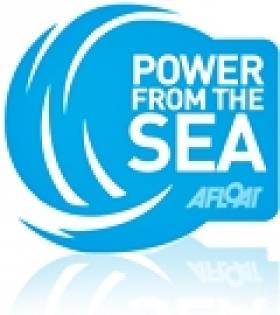Displaying items by tag: devices
UCC Wave Energy Trials Central to New Maritime Cluster
#POWER FROM THE SEA - A €9 million Europe-wide wave energy trial programme is one of the key elements of a new Government programme designed to transform Ireland as a maritime nation.
According to The Irish Times, University College Cork's Hydraulics and Maritime Research Centre will run testing of wave energy, tidal energy and offshore wind energy devices across a network of sites in 12 European countries participating in the new marine renewables infrastructure network Marinet.
Irish test sites in the network include the national ocean test facility in Cork and centres operated by the Sustainable Energy Authority of Ireland (SEAI) at Galway Bay and Belmullet.
The UCC centre also forms part of the new Irish Maritime and Energy Resource Cluster (IMERC), launched last Friday by Taoiseach Enda Kenny.
The cluster comprises UCC, the Irish Naval Service, Cork Institute of Technology and the National Maritime College of Ireland with the initial aim of creating 70 new research jobs by 2014 in the areas of wave energy, green shipping and sustainability of ocean resources.
IMERC director Dr Val Cummins said: “The aim of IMERC is to promote Ireland as a world-renowned research and development location that will unlock Ireland’s maritime and energy potential."
The Irish Times has more on the story HERE.
- Irish Naval Service
- maritime
- Cork
- Galway Bay
- Belmullet
- National Maritime College of Ireland
- wind energy
- UCC
- Cork Institute of Technology
- renewable energy
- wave energy
- sustainable energy
- tidal energy
- network
- testing
- Sustainable Energy Authority of Ireland
- Taoiseach Enda Kenny
- SEAI
- Hydraulics and Maritime Research Centre
- Marinet
- devices
- Irish Maritime and Energy Resource Cluster
- IMERC
- Dr Val Cummins




























































